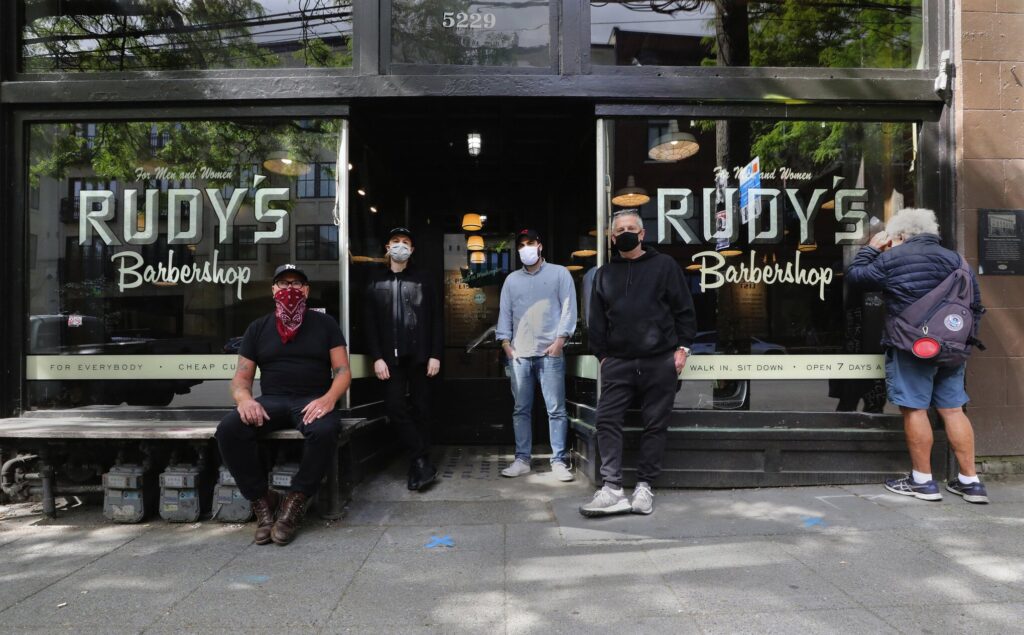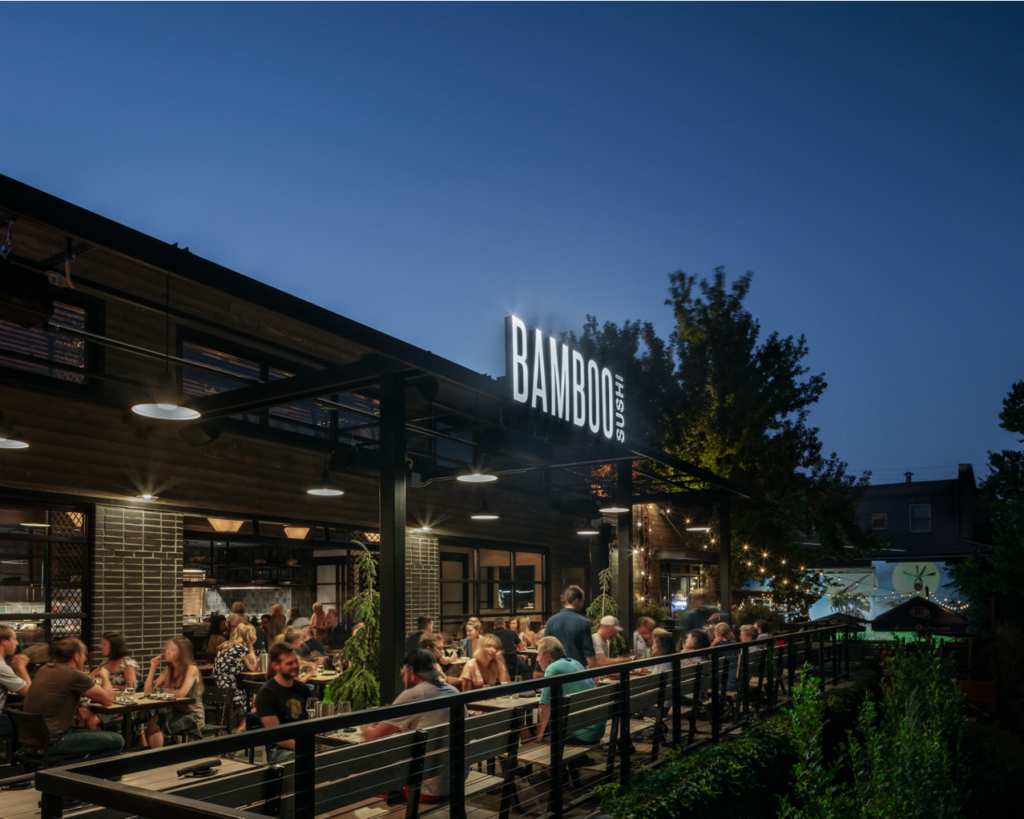
Sortis Rescue Fund 6 Month Update
On Wednesday October 14, 2020, Sortis’ Paul Brenneke and Sam Ross hosted a webinar for investors and our larger community to discuss the Sortis Rescue Fund. We launched the Rescue Fund in Quarter 2 of 2020 to capitalize on the dislocation and market stress caused by the COVID-19 pandemic and subsequent economic fallout. Since then, the Fund has placed three investments and is pursuing multiple opportunities for Quarter 4 of 2020 and Quarter 1 of 2021.
This recession is proving to be deep and intense enough to create situational distressed investment opportunities, particularly in hospitality, retail, office, and select operating businesses. The one-hour webinar covers:
- Updates from Sortis and our other funds, the Sortis Income Fund, Sortis Opportunity Zone Fund, and Sortis Growth Fund
- Why and how we decided to launch the Rescue Fund
- Our investment thesis, strategy, and deal sourcing process for the Rescue Fund
- Case studies of our first 3 investments: Rudy’s Barbershop, Happier Camper, and Bamboo Sushi
- Strategy looking forward and deal pipeline
- Live Q&A
Summary
Origins of the Sortis Rescue Fund
As COVID-19 began to demonstrate its severity, we saw the distress and potential for economic opportunities particularly in industries experiencing the worst impacts (retail, hospitality, office, and industrial, for example.) The Sortis Rescue Fund was purposely defined with a flexible mandate so that we can acquire real estate (our core competency) as well as distressed businesses in our areas of expertise. The Fund is flexible within each asset class. Given the unpredictable nature of COVID-19 early in the pandemic, we wanted to give ourselves the ability to capitalize and execute on opportunities as they present themselves.
The Sortis Rescue Fund is consistent with our overall investment thesis. We source deals creatively and directly, avoiding intense bidding wars. The Fund fits within the overall Sortis family of funds and has synergy with the Sortis Income Fund, a real estate mortgage debt fund, and the Sortis Growth Fund, a hybrid venture capital and consumer focused private equity fund capitalizing on the retail transition to e-Commerce. Our relationships, expertise, and flexible mandate allow us to use our capital in a creative and nimble, but still disciplined, manner.
Sortis Investment Thesis
COVID-19 has not significantly changed our core investment thesis. As we apply it to the Sortis Rescue Fund, we believe certain trends pre-COVID will pick back up and continue as we move through the pandemic and after. These trends include:
- The accelerated decline of old school retail
- The return of experiential retail driven by millennials (Food, Fitness, and Fun) after a pandemic pause
- The return of leisure and travel
- The slow return and long-term decline of convention-based travel
- The continued impact of technology on all facets of real estate
Sortis Rescue Fund Strategy
The fund is focused on the Northwest and plays into outdoor lifestyles, growing millennial demographics, and the focus on technology that we have seen growing over years. We see these factors leading to the continued growth in the Northwest post-COVID. We are also drawn to the mountain states as the shift to flexible working and living underway for the last few years has been accelerated throughout the pandemic.
As with our other funds, the Rescue Fund places great priority on risk mitigation. Each deal starts with a clear business plan, robust underwriting, and creative restructuring. Our focus prior to each transaction is how we will execute successfully.
Our deal sourcing is highly relational and situation-based, and we avoid working on highly competitive transactions. We often identify deals or situations and attempt to find an entry point that gives us a unique competitive advantage. All of our transactions in COVID-19 to date have been sourced this way, and it’s our plan moving forward to continue to do so.
The First 6 Months of the Rescue Fund
The distress we are seeing is consistent with our original COVID-19 strategy and predictions. Every one of our deals during this period has resulted from a combination of the COVID-19 environment, partnership challenges, and situational distress. That theme will continue for us and we are still looking at a number of bankruptcy / receivership deals. Complex messy deals are the best opportunities for our expertise where complexity and timing limit competition.
We are looking for substantially discounted assets in order to make money on the buy, a strategy that will continue as long as we are investing in this cycle. We do not have an exact timeframe for each exit and are opportunistic with monetization. We may hold assets for the life of the fund but are open to flexible early exit strategies depending on the asset.
Sortis Rescue Fund Investment Case Studies – Operating Companies
Our core theme for operating company investments is to identify great brands and acquire them at a substantial discount.
Rudy’s Barbershop
The SRF acquired a controlling stake in the Seattle based salon business that has been operating for 15+ years and has generated an unbelievably loyal fan base and brand name. They also have an underutilized e-Commerce line of men’s grooming products, one of the fastest growing categories in the retail space.
Due to the existing ownership structure, pandemic shutdowns forcing them to close stores, and partnership disputes, Rudy’s was forced into bankruptcy. Sortis was approached to partner with the Rudy’s founders and successfully acquired the company and its assets out of bankruptcy.
Post-acquisition we have successfully re-opened the 20 stores at the allowed 50% capacity with social distancing and safety measures in place. Over 250+ employees have been hired back, and we have rebuilt an entire new corporate team from the ground up. We also were able to renegotiate most of the leases to reflect current market conditions. By restoring jobs and capitalizing the company, Rudy’s will be in a prime position to succeed post-COVID through a roll up acquisition, a potential sale, or continuing on as a successfully profitable company.
Key Takeaway: being able to pick and acquire a great brand that we believe will win post-COVID at a significant discount and expanding the brand through e-Commerce distribution is a perfect example of the type of opportunity we look for in the Sortis Rescue Fund.

Happier Camper
We made a small investment in the outdoor travel trailer company Happier Camper based in San Francisco. Our affiliated fund, the Sortis Growth Fund, invested in the funding round and we were offered a small piece to finalize the round. While the company was not distressed itself, investors had pulled back due to COVID to create an opportunity early in the pandemic.
Happier Camper makes small, modern, well-designed, and ultralight camping trailers. They have experienced a massive increase in demand throughout COVID due to travel restrictions and more people seeking outdoor excursions.
Due to the demand spike, Happier Camper is currently raising a new round of fundraising in order to expand manufacturing capacity. As part of that fundraising round, the Rescue Fund’s position will have increased in value by almost 40% in under 3 months.

Sustainable Restaurant Group (SRG), owner of Bamboo Sushi
Portland-based Bamboo Sushi has 9 restaurants in Oregon, California, Washington, and Colorado and is a star in Portland’s renowned restaurant industry. Based on their ownership structure, partnership disputes, and COVID-19 shutdowns, SRG was forced into bankruptcy in order to preserve the company and as many employees as possible to get through the pandemic.
Sortis entered the process days after the bankruptcy was filed, helping propose and craft solutions and eventually becoming the stalking horse bidder acquiring the company and most of its assets out of bankruptcy. Our core competency in real estate was a significant advantage for this deal. As location and real estate are the most important factors for a restaurant, we were able to bring our real estate expertise to renegotiate most of the leases and complete a broken construction project in San Jose, CA that was only 70% complete upon acquisition. Sortis was able to complete complex restructuring resolving liens and potential litigation that worked out for the contractor, landlord, and most importantly Bamboo Sushi and its investors.
Our restructuring efforts in the 60 days after acquisition should generate in excess of $500,000 in savings for the company over the next 12 months. The restaurants have been reconfigured to optimize the ‘to-go’ and delivery business as sushi has proven to be a high-performer in the ‘to-go’ business. Currently, several of the stores are running a 25% EBITDA margin on the to-go business. By adding the robust takeout and delivery services, the company should achieve profitability ahead of schedule.
Sortis is also building out a new management team to run day-to-day operations at Bamboo Sushi. We have partnered with the best people available giving them the capital, tools, and resources they need to focus on managing the business and achieving profitability.
Key Takeaway: The ‘to-go’ and delivery business will be a key component moving forward, even after the pandemic. If we can squeeze even 10% more sales out of the restaurants it will further enhance what was already a profitable business pre-COVID. Bamboo Sushi is also well capitalized and will be in a prime position to seek A+ locations in Denver and Seattle for expansion while many competitors are on their heels.

Deal Pipeline
The businesses who have made it through the pandemic so far are likely to continue to heal, yet this remains a once in a lifetime opportunity to buy great brands at a discount. We are the plan sponsor for the Blue Star Donuts bankruptcy where we guided the company into Chapter 11 bankruptcy and should successfully exit in November. We will get a 30% equity position at a small fraction of their pre-COVID valuation.
We are also in pursuit of several additional deals including: a Portland hotel property, a Seattle hotel property, a California hotel in bankruptcy, and a residential mixed-use property in the Portland area that is in bankruptcy.
Strategy Moving Forward – Real Estate Acquisitions
We are not afraid of tackling more operating businesses, but they definitely are a needle in a haystack. Lenders have been generally patient, so the wave of real estate deals is just starting to emerge as that patience wears thin and the pandemic drags on. We believe the real opportunities going forward for the Sortis Rescue Fund will be in real estate. These deals will take longer to transact, but we are definitely seeing an increase in activity. We are tracking a handful of deals that we believe will ripen over the next 6 months as we do not see enough near-term relief for them to resolve on their own.
Q&A
What are your exit strategies for Bamboo Sushi and Rudy’s Barbershop?
We think about exit strategies before we even enter a deal. Our team has private equity and hospitality expertise and we see that as being critical for these investments. The companies are small private equity candidates now, and we feel once we get through COVID they should be able to take full advantage of multiple exit opportunities from a full or partial exit capitalization to an eventual sale. We plan to remain opportunistic with the exit for each business, but believe we have multiple pathways for them both.
Did these businesses access PPP funds?
Yes, both the Rudy’s and Bamboo Sushi acquisitions were eligible for PPP funds. As a result of acquiring funds, both Rudy’s and Bamboo Sushi were able to rehire roughly 50% of their employees to date. Our goal is to return to 100% employment by Q1 or Q2 of 2021, depending on pandemic conditions. We expect to achieve forgiveness for the PPP loans based on our projections to date.
What other industries are you looking at?
For businesses, we are looking for great brands that are available at a substantial discount. We look for opportunities that have been hit the hardest by the pandemic but have a good survival plan that we expect will allow them to rebound quickly due to brand positioning. Our focus has thus been the hospitality sector which has been possible due to the considerable expertise on our team in that industry. If another operating company with a great brand becomes available, we will consider it, but we are primarily focused on pursuing real estate moving forward.
Is ownership split between funds?
Typically, no, but we are not prohibited from that. If a deal crosses two mandates then we can have investment from two funds, which is pretty typical in the private equity space. If and when that does happen, both fund equity investments are treated equally – one does not end up at the expense or benefit of the other.
What are the investor level returns on capital that has been deployed already?
We have set targets at 20% annually for the SRF, but it is tough to project returns at this point as we have not yet exited. We are focused on making money on the buy, which is key for the return. For example, Bamboo Sushi pre-pandemic was valued at $40 million and we acquired the company for a little over $2 million. This is a once in a lifetime buy, and we expect that as things begin to normalize our strategy will lead us quickly to profitability. Since there is additional risk in operating companies, we hope to achieve outsize returns from these investments.
Are you still taking new investment dollars, and how will they be treated?
The Sortis Rescue Fund and related deals have raised around $1.75 million and the fund has 30 investors with a limit of 100. We are still taking new investment dollars and will be doing so for a full year from inception. The structure is:
First, investors will receive 100% of distributions until investors receive a 10% IRR.
Second, investors will receive 80% of distributions and the manager will receive 20% of distributions until investors receive a 15% IRR.
Third, investors will receive 60% of distributions and the manager will receive 40% of distributions thereafter.
Can this investment be used as 1031?
Unfortunately, no. It is a fund so ownership is in an LLC and thus not eligible for the 1031 exchange.
What is the tax reporting structure for the Sortis Rescue Fund?
The Sortis Rescue Fund is an LLC, so investors receive a K1 at the end of each year.